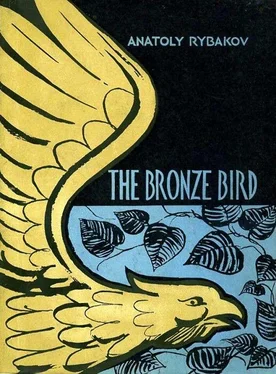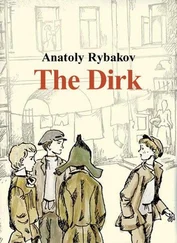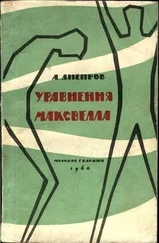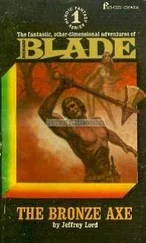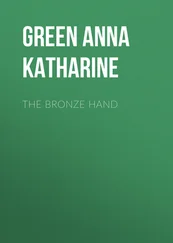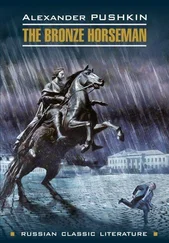Anatoly Rybakov - THE BRONZE BIRD
Здесь есть возможность читать онлайн «Anatoly Rybakov - THE BRONZE BIRD» весь текст электронной книги совершенно бесплатно (целиком полную версию без сокращений). В некоторых случаях можно слушать аудио, скачать через торрент в формате fb2 и присутствует краткое содержание. Город: Moscow, Год выпуска: 1956, Издательство: Foreign Languages Publishing House, Жанр: Детские приключения, Детектив, Исторические приключения, на английском языке. Описание произведения, (предисловие) а так же отзывы посетителей доступны на портале библиотеки ЛибКат.
- Название:THE BRONZE BIRD
- Автор:
- Издательство:Foreign Languages Publishing House
- Жанр:
- Год:1956
- Город:Moscow
- ISBN:нет данных
- Рейтинг книги:5 / 5. Голосов: 1
-
Избранное:Добавить в избранное
- Отзывы:
-
Ваша оценка:
- 100
- 1
- 2
- 3
- 4
- 5
THE BRONZE BIRD: краткое содержание, описание и аннотация
Предлагаем к чтению аннотацию, описание, краткое содержание или предисловие (зависит от того, что написал сам автор книги «THE BRONZE BIRD»). Если вы не нашли необходимую информацию о книге — напишите в комментариях, мы постараемся отыскать её.
THE BRONZE BIRD — читать онлайн бесплатно полную книгу (весь текст) целиком
Ниже представлен текст книги, разбитый по страницам. Система сохранения места последней прочитанной страницы, позволяет с удобством читать онлайн бесплатно книгу «THE BRONZE BIRD», без необходимости каждый раз заново искать на чём Вы остановились. Поставьте закладку, и сможете в любой момент перейти на страницу, на которой закончили чтение.
Интервал:
Закладка:
"It's from the right bank," Misha said in a businesslike tone. "Longshanks, head for the bank, and you, fellows, pull hard!"
Urged on by the mounting smell of porridge, the boys pulled with all their strength. Misha stood in the bow, turning his nose now in one direction, now in another.
Soon on a hillock they saw the white tents of a Red Army camp. Horses were stamping their hoofs at a picket rope, a long row of wash-basins, hanging from a cross-piece between two trees, glittered in the sun, red streamers with slogans printed on them fluttered in the wind, target boards stood in the shooting range, and there were ditches and embankments. But the camp was deserted. The men were probably training. On the bank, steam was rising from a field-kitchen. That was where the smell of porridge was coming from. A Red Army man, his face red with heat, was wielding a huge ladle. Another soldier was on his knees splitting firewood and feeding it into the fire.
The boys edged up to the kitchen. The cook gave them a sidelong glance and turned his head without saying a word.
Misha and his friends made no move to go away although they realized that it was silly to stand like this. They were terribly hungry but they did not know how to go about getting something to eat. Finally, Misha said:
"Please, comrades, could you tell us if two Young Pioneers, two boys in a boat, passed by yesterday evening? We're looking for them."
The cook paid no attention. But his assistant said:
"We didn't see them. They might have gone by, but we didn't see them."
There was another silence.
Genka gave the cook an ingratiating look.
"You don't need any help?" he said.
The cook squinted angry eyes at him, turned away and barked:
"Ignatyuk, plates!"
The soldier got to his feet, went to an awning and came back with four big aluminium plates. With his huge ladle the cook filled the plates with porridge, then with a smaller one poured butter over it. Genka ran to the boat for spoons. Scalding themselves, the boys fell upon the porridge. For some time the only sounds were a loud smacking of lips and the squelching of the porridge.
When the plates were empty, the cook again turned his red, angry face to the boys and, after looking each of them in the eyes, hit the pot with his ladle.
"Ignatyuk, more!"
Ignatyuk collected the plates. The cook ladled out more porridge into them, smaller portions than the first but exactly what was needed. He certainly knew his job, the cook did, in spite of his being so taciturn.
"Ignatyuk," he said, "dry rations-bread!"
Ignatyuk went to the awning again and came back with four big pieces of bread, which he gave to the boys.
"A-about tur-rn, quick mar-rch!" the cook commanded without turning round.
"Thank you!" the boys cried happily and ran to their boat.
In the boat, Misha took the bread from his friends, put it in a bag and, raising a finger, pronounced meaningfully:
"The world's not without kind people!"
Satiated and happy, the boys rowed briskly. They were not far from Frolkin Ford. According to Longshanks, that was as far as Igor and Seva could go.
"Well, here we are. This is Frolkin Ford," Longshanks said.
Two logs, supported by piles driven into the bank, spanned the narrow river. This was Frolkin Ford. A booming sound could be heard in the distance.
"That's the water at the windmill," Longshanks explained. "The dam is near from here."
A boat with its bottom side up was lying on the bank. With an effort, the boys righted it.
"Do you know this boat?" Misha asked Longshanks, sudden anxiety filling his voice.
Stuttering with excitement, Longshanks said:
"It belongs to Kuzmin, the man who was murdered."
"Can't be!" Genka cried.
But Longshanks could not be mistaken. It was Kuzmin's boat.
This was staggering news. The boys exchanged frightened looks. Again Kuzmin. Again that mysterious murder. And it looked as though Igor and Seva were somehow mixed up in it after all. How did they get Kuzmin's boat? Where had they taken it from? When Kuzmin and Nikolai went to Khalzin Meadow, Igor and Seva were with the foreigners, that is, they were far below Khalzin Meadow. And they had left their raft on a sand-bank, which was also past Khalzin Meadow.
"They found this boat accidentally," Misha said at last with a note of uncertainty in his voice. "They had no idea it belonged to Kuzmin. Longshanks, are you sure this is Kuzmin's boat?"
"Positive!"
"Let's suppose it is," Misha continued, "but those silly asses did not know that and they could not know it. They simply found it drifting in the river and dragged it on to the bank so that the owner would see it and take it."
"It's a disgrace!" Genka exclaimed. "They ran away from the camp, stole a boat..."
"Wait," Misha stopped him. "At any rate, one thing is clear: Nikolai did not take or hide Kuzmin's boat. That's very important. We'll find the chaps and get to the bottom of this. See, the boat's still wet. That means it was taken out of the water a short while ago. Perhaps even this morning. Is there a village nearby?"
"Stukolovo," Longshanks replied. "About three kilometres from here."
The boys went to the village, leaving Longshanks behind to guard the two boats.
Chapter 23
THE FUGITIVES
At first, the road followed the river-bank, then the fringe of a woods, and then swung sharply into a field.
On the fringe of the woods, a boy cowherd, with a whip slung across his shoulders, was walking behind a herd of cows. Two small dogs began to bark furiously when Misha and his friends came into sight, but when they ran up to the boys they began to wag their little tails fawningly.
"Will we get to the village by this road?" Misha asked the cowherd.
"Yes," the cowherd replied and then for a long time followed the boys with his eyes.
It seemed that the village was still asleep. There was not a soul in the streets, locks hung on all the gates and the dogs did not bark. The boys went past the village shop and saw a big house with a sign reading: Stukolovo Village Soviet.
The doors of the Village Soviet were ajar. But there was nobody inside. A shiny, timeworn table, with the drawers open, stood by its lonesome self. On one of the walls hung a telephone. The open window banged to and fro. The floor-boards squeaked underfoot, and there was paint only along the walls; in the middle it had worn away. Coming out of the Village Soviet, the boys saw an old watchman in a sheepskin coat holding a rattle in his hand. He looked suspiciously at Misha and his friends. "What do you want?"
The boys explained that they were from a Young Pioneer camp and were looking for two of their number, who had come here the day before in a boat.
The watchman listened in silence. He seemed to be either chewing something or simply moving his lips.
"Come along with me," he said sternly.
"Where to?"
"They'll decide. Come."
Completely bewildered, the boys followed him. The watchman, hobbling in a funny way in his huge, patched felt boots, kept throwing queer and comically suspicious glances at the three lads.
In this manner they reached a big, two-roomed hut.
"Go in," the watchman said sternly and followed the boys in.
In the dark passage, Misha felt for the door-knob and pulled it. The door opened. The boys entered the hut, stopping in amazement on the threshold.
At a big square uncovered table sat Igor, Seva and a militiaman – an ordinary militiaman in uniform. His cap and belt with the pistol in the holster were on the bench beside him.
The mistress of the house was bustling at the stove. The back half of the room was partitioned off by a chintz curtain, from behind which came the squeals of children.
Читать дальшеИнтервал:
Закладка:
Похожие книги на «THE BRONZE BIRD»
Представляем Вашему вниманию похожие книги на «THE BRONZE BIRD» списком для выбора. Мы отобрали схожую по названию и смыслу литературу в надежде предоставить читателям больше вариантов отыскать новые, интересные, ещё непрочитанные произведения.
Обсуждение, отзывы о книге «THE BRONZE BIRD» и просто собственные мнения читателей. Оставьте ваши комментарии, напишите, что Вы думаете о произведении, его смысле или главных героях. Укажите что конкретно понравилось, а что нет, и почему Вы так считаете.
